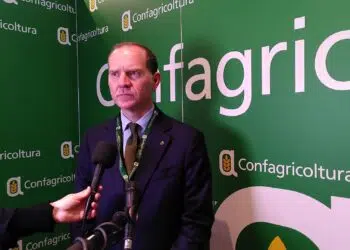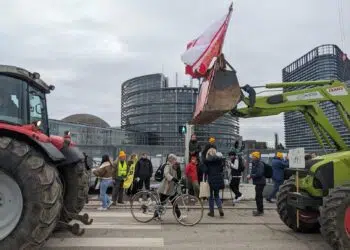Brussels – The European Commission clarifies and puts its hands out: “The report is not from the Commission but from an external body, and it does not imply anything in terms of policies to come.” But the report on the sector’s future, compiled by members of the Strategic dialogue, thus farmers, trade associations, and operators in the sector, is the basis—if not for work, at least for reflection—by the new EU executive. Money—and lots of it—and exceptions to the constraints of the Green Deal are the main demands for the second von der Leyen Commission, now in a corner. The German, out of lust for reappointment at the head of the EU executive, promised so much to farmers, and now even more is being asked of her, with the difficulty of the case.
She wants to be on the podium next to the president of the Strategic dialogue she launched, just to put out the protests of a world in revolt, to reiterate that her word is a commitment and that the proximity to the sector was not related to campaign reasons, also won by seeking votes from a world that brings votes to the polls as in the European Parliament. Von der Leyen wants to give answers and promises to provide them “within the first 100 days of the term of the next commission.” But she must move cautiously, lest she risk caving in completely.
Farmers are calling for the ETS emissions trading system not to be extended to the primary sector. It would be “premature” to even think about it. Instead, it is better to envision a special temporary Just Transition Fund “outside the Common Agricultural Policy (CAP) to supplement support for the rapid, sustainable transition of the sector.” To ferry businesses without economic setbacks, “the European Investment Bank (EIB) should implement a specific group lending package for the sector.” Still, to achieve the EU’s objective regarding agriculture and food production, rural development, climate neutrality, and biodiversity restoration, it calls for “a dedicated and commensurate budget that meets all ambitions in a balanced and equal manner” and a greater “green” financial leverage. “Financial support for environmental and climate actions will have to increase substantially each year in the next two periods of the Common Agricultural Policy (CAP) from the current budget share for eco-schemes and agri-environmental and climate instruments.”
The agricultural world wants to be inundated with money and direct aid, as evidenced also by the call for a well-stocked nature restoration fund outside the CAP to support farmers and other land managers in restoring and managing natural habitats at the landscape level, not to mention organic production, for which support is sought—financial, of course. Alongside this, a review of procurement and animal welfare rules is wanted. The commitment being asked of von der Leyen is not small, and now she is in the dilemma of conceding something. She promised, and she still promises. “We have to do more, and we will do more to defend our agriculture and make it more sustainable,” the outgoing and incoming chairperson says.
The actual knot for her will be “how”. How to concede without giving in and find solutions without giving the impression that she has become a hostage to the agricultural world? She will have to think about that. Indeed, “agriculture remains strategic for our economy and our self-sufficiency,” acknowledges von der Leyen, who must start here to find the balance. The report on the future of agriculture is not from the Commission, but it is likely to influence its mandate.
The chairwoman of the Community Executive offers just a few glimpses by way of reassurance: “There are already some key objectives outlined in my Policy Guidelines. First, we must ensure fair and sufficient incomes for our farmers.” And then, she adds, “we must continue to reduce bureaucracy, especially for small and family farms.” Von der Leyen starts here, and from here much of her second term will be decided.
![La presidente della Commissione Ue, Ursula von der Leyen [Bruxelles, 4 settembre 2024]](https://www.eunews.it/wp-content/uploads/2024/09/vdl-agri-719x375.png.webp)








